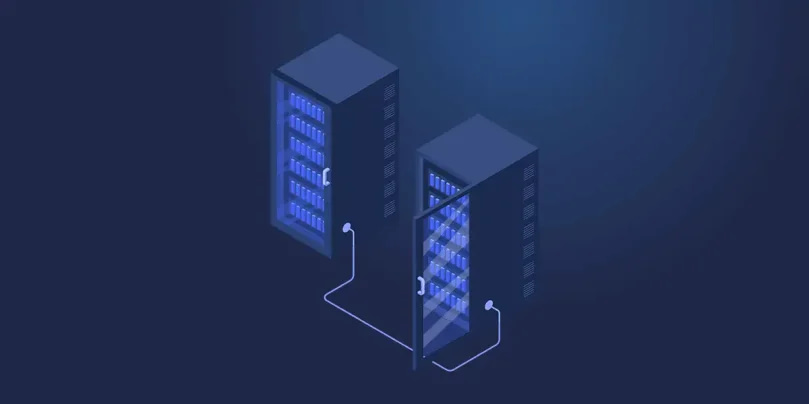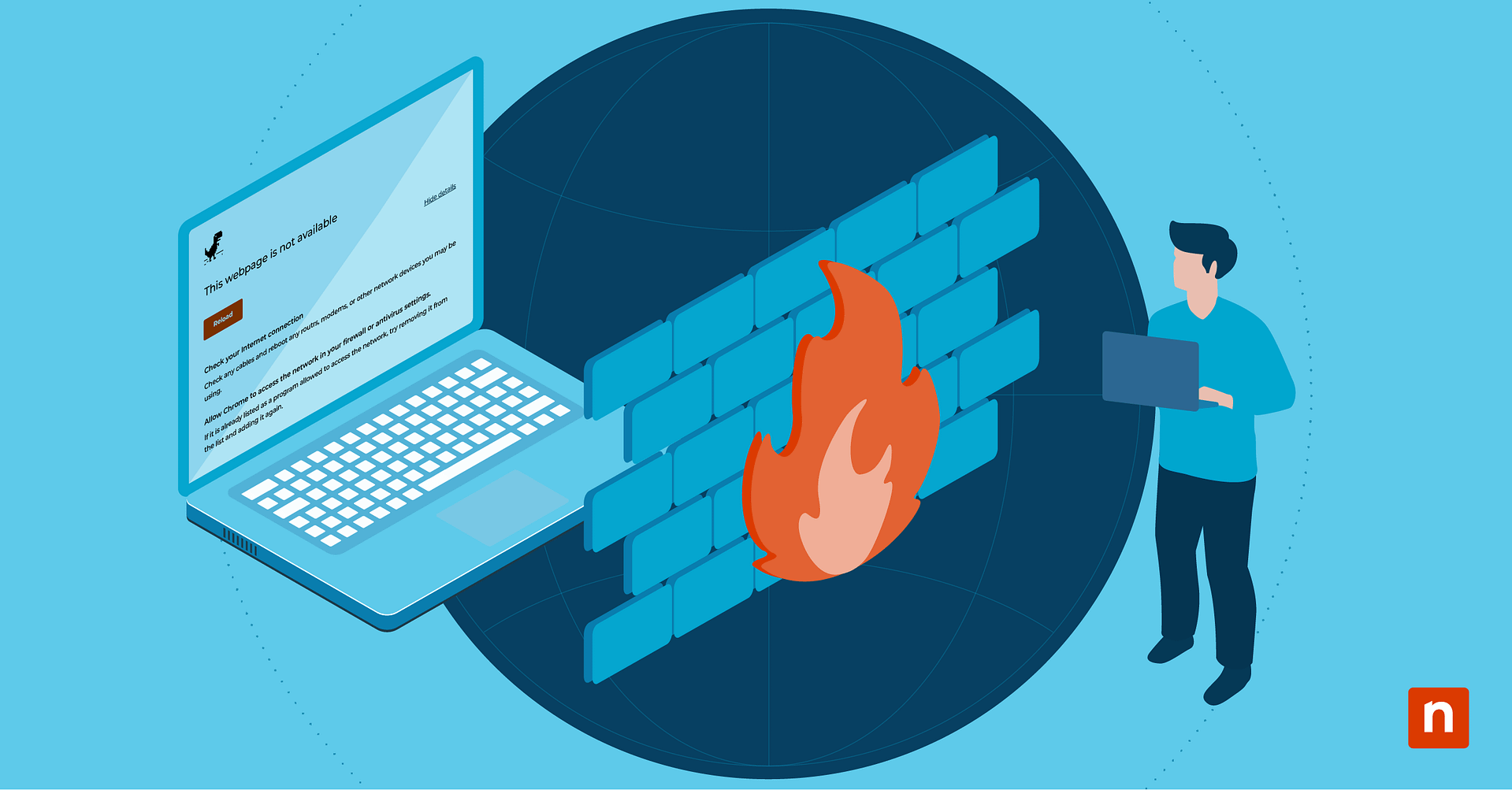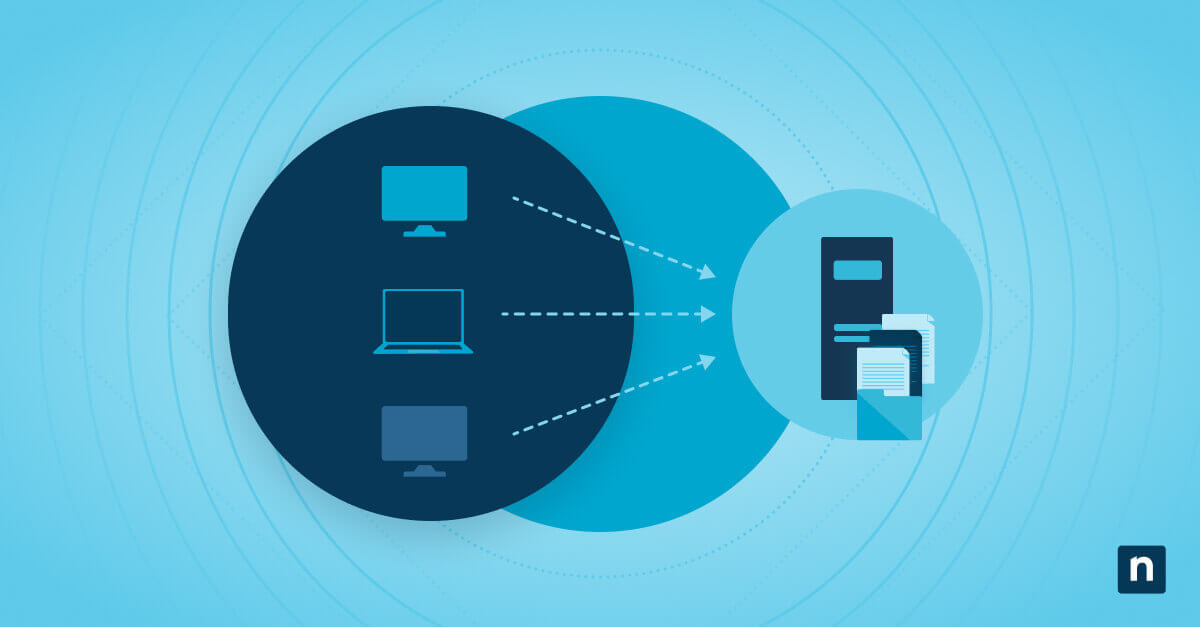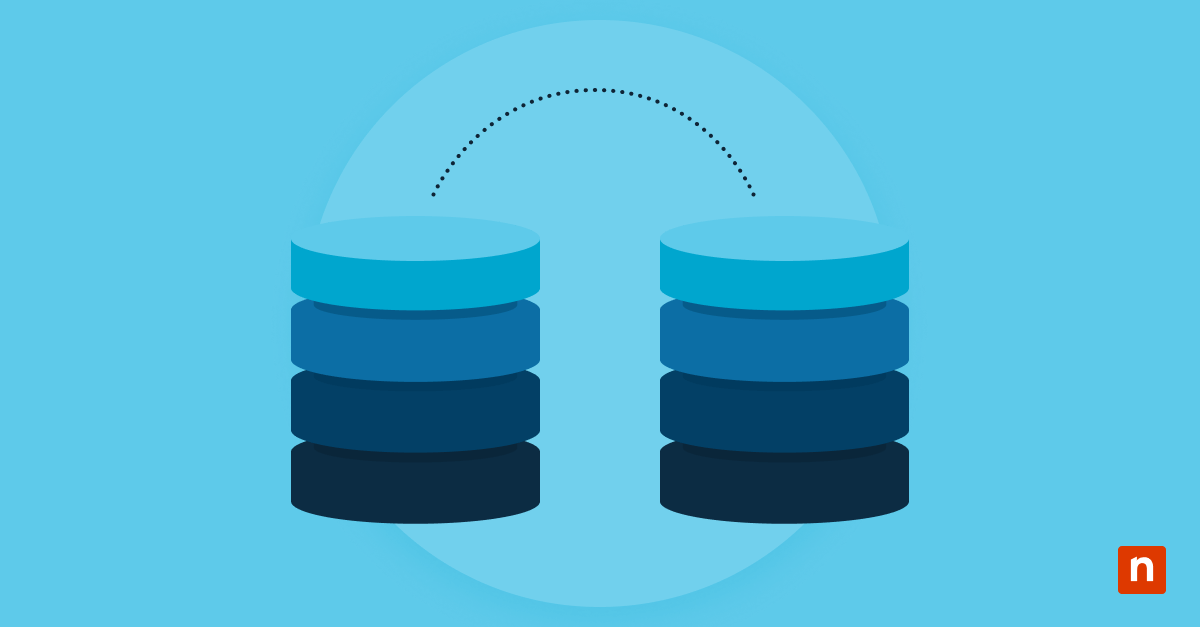There are a variety of ways to add accessible data storage to a home or business network, but not all equipment is created equal. Determining the best solution is challenging, especially for small businesses or home users who don’t necessarily need the features and capacities that large organizations require.
Among the most common solutions to choose from are cloud, in-house servers, and network-attached storage (NAS), which is different than storage area network (SAN). Each has advantages and disadvantages in terms of expandability, customization, cost, deployment, and ease of use. Let’s take a closer look at how small businesses can make the most informed choice about NAS vs server.
What this article will cover:
- What is a NAS and how is it different from a file server?
- Pros and Cons: File Server vs NAS
- Server or NAS for a Small Business
- Cloud or NAS?
- Choosing NAS devices
File servers and NAS devices are both able to facilitate the sharing of files across devices on a network. That said, the manner in which they do so is quite different. While NAS devices are sold as simple solutions, the typical file server offers more powerful hardware and greater functionality.
While a file server and NAS device both allow administrators to control who has access to specific files and folders, a file server typically offers more customization, security configuration options, and more granular access controls.
This is just one of the key differences. To explore further, let’s look at the pros and cons of each.
Server Pros and Cons
While they might sound complicated to the uninitiated, servers are essentially computers designed to maintain 100 percent uptime. They can range from small desktop towers suited for that purpose all the way up to complex racks of devices with wide functionality.
The key consideration is that servers are designed to run all the time in service of the network, providing things like storage and processing power in ways that are custom configured to suit the needs of the users. They are purpose-built for this role and can be assembled or modified such that the hardware matches exactly what is needed.
This benefit is also the main point of argument toward the Network Attached Server (NAS) alternative. Custom-built hardware is more expensive and requires more administrative intervention to configure and maintain, whereas NAS devices are meant to be purely plug-and-play solutions or to provide additional storage beyond what servers offer in a shared network environment.
That said, you can expect to pay more for a file server than for a similarly spec’d NAS (in terms of storage capacity). The difference, besides the added configurability, is that the more-costly file server will have a faster processor, more RAM, requires the use of an operating system like Microsoft Windows Server, and can serve up access to client-server applications and host network administration tools.
The processing power comes into play with high-demand use cases, such as with media servers that need to transcode media to different formats. Again, this brings us back to the power and flexibility offered by servers over NAS devices.
Network Attached Server (NAS) Pros and Cons
Our relevant alternative is the Network Attached Storage (NAS) device. This is a data storage server that allows file access to computers on a network. As mentioned earlier, these are usually packaged up as a pre-built piece of equipment for plug-and-play use, though they can be built.
Again, an entry-level NAS is going to be cheaper than an entry-level server that has the same amount of storage. This goes back to the flexibility aspect because a NAS is really only built for storing and accessing data.
It’s this single-purpose design that lends to the simplicity of the NAS. Once the device is purchased and/or assembled, the setup process is easy. They typically only need to be powered and connected to the network to get started.
That is the common tradeoff in technology, though. Ease of setup does mean less ability to configure and customize the NAS, and repairs are generally harder to make on these self-contained units than they are on file servers.
NAS vs File Server for Small Businesses
A NAS device is pitched as a less-complicated solution to the challenge of storing and sharing your company’s files on a network. Specifically, NAS manufacturers lean on the idea that business owners are looking for the easiest solution for solving this problem — and that setting up a traditional file server is too complicated to meet that need.
On top of this, NAS is pitched on price. Since a NAS device is generally less expensive than a file server with similar storage specs, it can seem like a more cost-effective way to address the need for file storage and sharing.
Both of these claims are generally true, but there are two key problems with NAS devices that should be weighed against these selling points.
The first concern is that NAS systems are proprietary implementations of an open standard. A traditional Windows file server is essentially an open implementation — meaning that you can access it, configure it, sync it, secure it, and utilize it however you want. NAS devices take away that freedom by essentially locking down the potential of the server behind an “easy to use” front-end interface. Again, when you make technology simple, you usually have to take away many of its features.
The problem that this creates is a sort of false simplicity that actually works against the point of having servers in the first place. A NAS device could potentially do more, but it is intentionally hobbled to make it easier to use. It’s pretty much a matter of spending the money to get 90% of the way to a hardware solution, and then having a good portion of that potential locked away on top of it.
In short, the question isn’t really “NAS or file server”, but “does your small business need a server, period?”
If the answer is a definite yes, then you’re almost certainly going to benefit more from a server rather than limiting yourself with a NAS. If you’re uncertain of the answer — or if you genuinely only need a bit of shared storage — then your most promising choice will probably be the cloud.
NAS devices are sort of a holdover from a time when IT and network devices had to live within the office. Nowadays, even the workers don’t have to be in the office, so the cloud has become the go-to answer for most business storage and file-sharing challenges.
Because cloud options are affordable, scalable, and easy to use, they do everything a NAS was designed to do…but usually better. While this is true it can certainly be nice to have a local copy of your file on a NAS or to keep on one hand to archive older files that you don’t wish to pay for or have clutter up your cloud file storage.
How to Choose Between NAS vs File Server
There are a few edge cases where a NAS might still make sense. If you fall into that small category where the cloud isn’t a fit, you will need to assess a few other points to determine if NAS is a viable alternative. We’ve addressed many of these considerations in the pros and cons, but let’s review:
Ease of use: NAS is more basic than a file server in that you don’t need system administrators to take care of your hardware or data.
Functionality: Consider the size of your operation and how much you intend to grow in the future. NAS systems are generally considered viable for small offices sharing files between two or three devices. Scaling beyond that in the future means more purchases and more drives or devices.
Space available: An NAS setup typically does not require a lot of space, whereas even some lower-tier server setups require a rack about the size of a small closet. Desktop-sized server towers do not take up much more space than a regular PC, and cloud storage takes up no physical space at all.
Data security: Security is generally better in a file server or the cloud than when using NAS, simply because IT administrators and cloud providers have cybersecurity experts in charge of protecting those assets. NAS devices often limit what security measures you’re able to deploy in their systems.
Sharing ability: Choose a NAS that allows control over user access which is important for data security. Being able to grant or revoke the rights of the user temporarily or permanently while data moves within and outside of the network will help prevent costly data breaches or compliance issues.
Conclusion
Electronic data storage is an important aspect of any modern business. From small businesses to huge corporations, we all need reliable and secure ways to share and store data.
There are several great options and devices available to help us store and share that data. For many years, the traditional file server has been the go-to option, wherein a computer acts as a centralized server and stores data for all the other computers to access. The next step in that evolution was the cost-effective and simple Network Attached Server. While this option does boast a couple of pros, advances in cloud technology have nearly eliminated the need for NAS systems in a small business environment.
For those who still fit that edge case category of viable NAS users, we’ve outlined the most important considerations that you’ll need to understand before selecting a solution.
NinjaOne provides a number of options supporting Server and NAS management
- Ninja Data Protection
- Automated Patch Management
- Built-In Remote Access Tools
- Powerful Scripting Engine
- Real-Time Monitoring of Endpoints
- Documentation
For more information: NinjaOne







